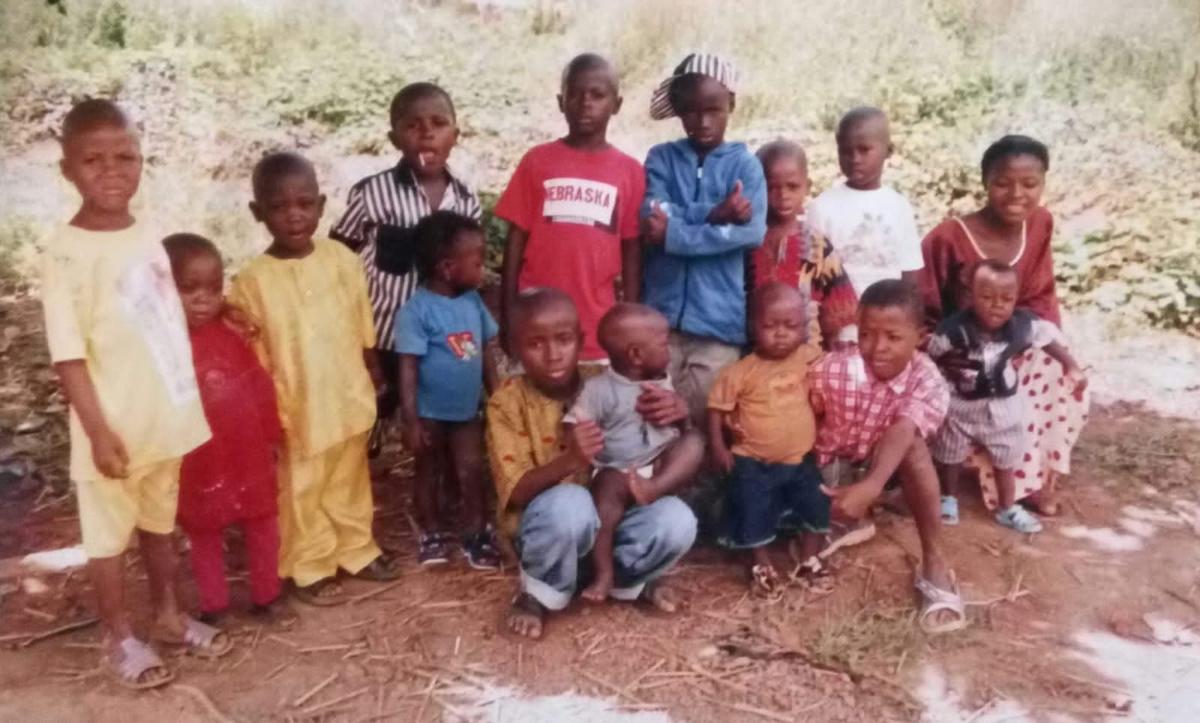Liberian refugees rebuild lives as first post-war elections get underway
Liberian refugees rebuild lives as first post-war elections get underway

MONROVIA, October 11 (UNHCR) - Every day at two in the morning, Bessy gets up to bake bread. She does it quietly, trying not to wake her children. By five, this single mother of two fixes a modest breakfast for her daughters before leaving her house on the outskirts of Monrovia to sell the bread on the streets of the capital. "I started baking bread while I was a child myself," this former refugee remembers.
Today, however, she considers her bread business to be just a small additional source of income. With the help of a micro-loan provided by one of UNHCR's implementing partners, the American Refugee Committee (ARC), she has been able to expand her activities, and her main income now comes from the second-hand clothes stall she runs in one of Monrovia's most popular markets.
"Without the micro-loan, it would have been much more difficult for me to expand my business," says Bessy, who received 3,000 Liberian dollars (around US$50) in a loan she'll have to repay on bi-weekly basis within four to five months.
"I'm working hard, I sell bread, by eight at night I'm back home, then I take care of my children, by eleven I go to sleep and then I just have three hours to rest." But Bessy does not complain. Just a few years ago, she was a refugee in Guinea, with nothing to her name. Today, she makes a profit of 3,000 Liberian dollars profit on average every month and she is proud: "I do have my own house now."
An estimated half a million Liberians fled to neighbouring countries to escape the unrest and civil war under the government of President Charles Taylor, and another half million were displaced inside the country. Since the end of the civil war 225,000 internally displaced people have been resettled back in their home towns and villages, while some 200,000 refugees have repatriated, close to 40,000 of them with UNHCR assistance. In a country devastated by years of violence, this massive repatriation and resettlement operation is a complex exercise, dependent on many factors for its long-term success. While Tuesday's election is a hopeful development for the 1.3 million Liberians expected to vote, reintegration remains a considerable challenge.
Liberia's economy collapsed during the years of civil war, and refugees and displaced people alike face a dire situation upon return. Despite the work of the international community and of the people of Liberia to rebuild the war-torn country, it will probably take years to restore Liberia's economy. Nearly 85 per cent of Monrovians are jobless. Usually, it is women who engage in small trading activities, walking the streets of Monrovia with plates on their heads selling a few items to feed their families. Many of them, like Bessy, are the only breadwinners for the family.

It is these women that the ARC programme seeks to empower by providing loans that also aim to strengthen Liberia's micro-economy sector. Since the start of the programme in 2005, more than 1,174 people - 1,056 of them women - have been helped under the scheme, which runs along a rigorous selection system.
"Only groups of seven to ten people can apply," explains Jacob Boimah, Branch Manager of ARC. "They should know each other, trust each other and they must have been in business for the last six months." Returnees, however, get special conditions and need only show their small business has been running for two or three months.
Each group must present a joint application and a profit sheet. If the business idea seems promising, each member gets 3,000 to 3,500 Liberian dollars during the first cycle. If all goes well, the group can then apply for a second cycle, getting L$4,500 to 5,000. One member of the group is responsible for repaying the loan on time. In this way, the micro-loan system provides not only the funds necessary for people to start up again after years in refugee or internally displaced camps, it also encourages social support and commitment from beneficiaries.
"Our group did not know each other very well when we applied," Bessy recalls. "But through the loan we became friends. Whenever I get sick, one of the other women takes care of my stall."
Like Bessy, Nyamah Weedor was a refugee in Guinea until she and two of her children came back to Liberia with UNHCR's help in 2004. Her husband and other children are still in a camp in Guinea. She doesn't know when, or if, they will come back and has decided she must rely on herself to feed her family. She has opted to open a rice shop, not far from Bessy's stall. "I did engage in rice, because bananas or soap don't give enough profit," this tiny woman says firmly. Her stall has a privileged position, close to the main road through Duala.

"I have regular customers, they do come every day," she says. "A cup of rice sells between ten and twelve Liberian Dollars, depending on the quality, and on good days I make a profit of L$150 [around US$3]."
Times are not too good now, but nevertheless she will soon apply for the second loan cycle. Meanwhile, she is looking forward to the future. "I think everything will be all right," she says. "We had enough wars. I don't want to have to run away again." She, like many of the Duala's market women, will close her shop on election day and go to vote for a better Liberia.
By Annette Rehrl









